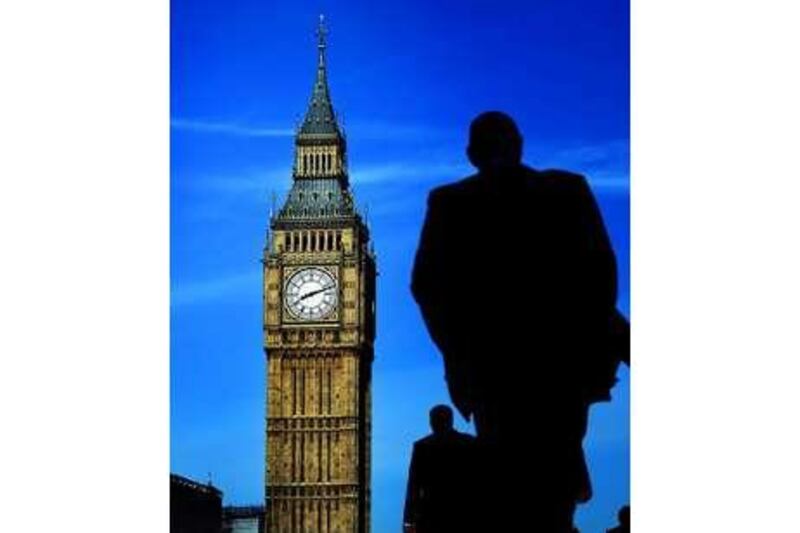In the past two weeks there have been promises from Europe's politicians to impose extra agony on their public sectors to deal with the debt contagion which is spreading across the EU. It's not just about the desperate loans afforded to the supposedly profligate Greeks; countries with only slightly less desperate debt problems have rushed to be seen to be doing the right thing and cutting public expenditure.
The Spanish parliament last week approved emergency measures to shrink the country's soaring deficit. It aims to cut spending by ?15 billion (Dh67.19bn) this year and next. Similarly, countries across Europe - including Italy, Ireland, Portugal, Greece and the UK - have announced spending reductions and tax increases to maintain public confidence in their ability to manage their finances. But the measures, many aimed at public employees, have drawn protests and criticism from union leaders across the continent. Part of the reason is the fact that politicians take none of the blame for Europe's debt crisis.
They need a scapegoat for failure and the usual one that comes to their collective minds are speculators, hedge funds and rating agencies. How dare they dump the euro? Germany responded by curbing short selling. The woes of the euro are being falsely laid at the door of financial bogey men, the new fall guys for all ailing economies. At the grass roots, however, another feeling pervades. Politicians who talk tough seem to have excluded themselves from the rhetoric. The UK, after a series of scandals last year over the expenses of politicians, is improving its game. Cabinet members in the new coalition have agreed to take a 5 per cent pay cut compared with their Labour predecessors, and to accept a five-year salary freeze. All in all, £3 million (Dh16.1m) will be saved.
But not all European politicians are getting the picture. Speak to any Italian and you'll quickly unearth a seething resentment of their elected representatives, not just because they have long been deemed semi-corrupt and ineffective, but because they are all those things and handsomely paid for it into the bargain. A recent BBC Guide to the pay packages of European legislators found that Italy has one parliamentarian for every 60,371 inhabitants, compared with one for 91,824 people in the UK, 112,502 in Germany and 560,747 in the US.
The basic salary for Italian senators is ?5,235 a month, but with expenses that figure moves closer to ?12,000, of which only a fraction is paid out for secretaries and researchers. Indeed, some claim for research help they never receive. Membership in a parliament of any EU country has its privileges. A French deputy qualifies for housing loans at a low interest rate on amounts up to ?76,000. The perk, designed initially to help "poor" MPs from the provinces find affordable lodging in Paris, is now a generally-abused one.
And those French deputies who lose their seats will still be paid their full salary for up to six months after the voters have spoken. If they remain unemployed, they will continue to be remunerated to some degree two and half years after being voted out of office. The Germans seem to have got it mostly right, even before cost-cutting fervour swept Europe. All expenses, including those for second homes, are rigorously scrutinised.
Then again, German legislators are extremely well paid, second only to the Italians when all expenses are added. However, there is a weakness in the area of declaring work done for outside interests. Moonlighting is open to abuse. Throughout the EU there are extra allowances and tax exemptions for all politicians, including subsidised mortgages, free travel to and from capitals as well as sugar-coated pension entitlements and even extra funds for second kitchens in second homes.
European politicians seem to feel they should remain excessively well paid while doling out hard measures for their constituents. But if charity begins at home, where does austerity begin? Going by the way Europe's MPs pay themselves, definitely not at the top. @Email:business@thenational.ae





